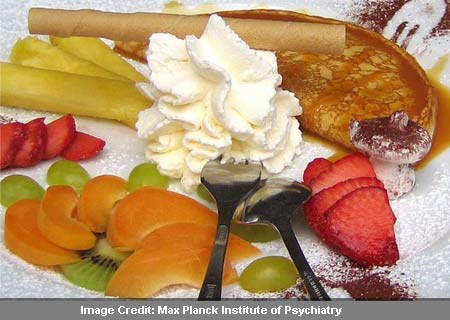Very soon, a new warning board may be seen at all places reading ‘Don’t look at images of tasty food,’ if we plan to go by this report. Professionals from the Max Planck Institute of Psychiatry have scientifically affirmed the popular belief that the mere sight of delicious food triggers the appetite.
In the analysis, a set of healthy males was exposed to images of delicious food items or non-edible objects. The proportions of varied hormones in their bloodstream like insulin, ghrelin and leptin were gauged. As per the outcomes, the amount of ghrelin in the blood apparently increased, specifically as a response to pictures showing food.
“The findings of our study demonstrate, for the first time, that the release of ghrelin into the blood for the regulation of food consumption is also controlled by external factors. Our brain thereby processes these visual stimuli, and the physical processes that control our perception of appetite are triggered involuntarily. This mechanism could prompt us to eat a piece of cake just two hours after breakfast,†cited Petra Schüssler, a scientist at the Max Planck Institute. She thus recommends that individuals with weight problems should preferably avoid looking at images of appetising food.
The hormone ghrelin is a neurosecretory protein that regulates both eating patterns and the physical aspects of food metabolism. Thus, apart from physiological processes involved in instigating feelings of hunger, environmental variables may play a role too.
Therefore, media in many developed countries depicting images of delicious food in ads could be one reason for increasing appetite of people, thereby fueling the obesity epidemic. The study titled, Ghrelin levels increase after pictures showing food’ is published in the journal, Obesity.

